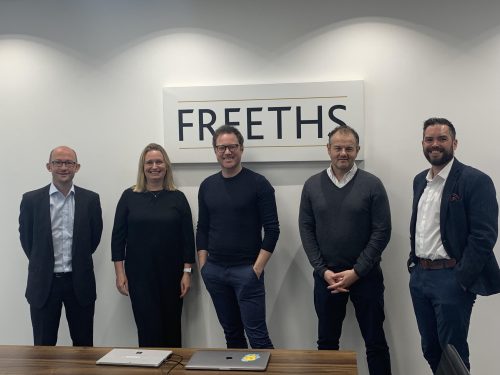Levelling Up doesn’t answer the right question!

TheBusinessDesk.com in partnership with Freeths recently explored the role of Levelling Up in Yorkshire, North West and Midlands, what it means for the places, the opportunities it provides and the potential challenges that could arise.


Allen Simpson, London and Partners
Allen Simpson, MD of strategy and operations at London and Partners highlighted that Levelling Up fails to address the right question of how to make London a partner for the regions.
He explained the idea of it being “smashing up” a global city which is able to direct international money anywhere – London – would be an act of self-sabotage. In fact to deliver Levelling Up he explained the Government needs to “figure out how you effectively make London a partner for the regional cities”.
Simpson added that it was important to perhaps reshape the narrative around what that collaboration means and rather than be London + a regional city actually be a “Manchester + London” approach or a “Birmingham + London approach”. This way he explained the main investment can go into the regions were the relevant sector expertise are with support from a London office which provides access to the city’s “world leading professional services”.

Nick Whitten, JLL
Nick Whitten of JLL agreed that actually it requires a rethinking in terms of a hub and spoke model.
“The economic hub and spoke approach is the way I think that we should look at [Levelling Up].
“That’s probably one of the ways that the Levelling Up agenda so far looks like it might have slightly missed the mark” he added.
Whitten noted that Levelling Up should look at the strengths within each region and look at ways to “prime those” as opposed to trying to make everywhere have the same strengths.

Alice Dockar, Freeths
Alice Dockar, partner at Freeths noted that really for Levelling Up to work it needs to focus on the community aspect and that perhaps that approach is something which the government can learn from industry.
“That local focus is the importance of community lead regeneration that all the real estate industry is really focusing on. Then add in the S of ESG which is really getting more focus than it has historically.
“Fundamentally it’s about listening to the communities and I think that’s what the industry and real estate industry is doing really well.”

Simon Pearson, Cazenove Capital
Simon Pearson regional head at Cazenove Capital agreed as he said: “Communication links are the most important thing [between regions], rather than trying to chop businesses away and make them equalised across the country.”
Pearson added that one of the key things focused on in Levelling Up is transport but similar to Simpson he believes the approach misses the mark with regards to the true challenge.
“I don’t meet many business leaders who were jumping up and down with excitement about the idea of 20 minutes less to get to and from London. What we’re crying out for is the East West connection to be considerably better.”
He explained that although that demand is one which has been shouted loudly from the North he thinks it’s likely “the same throughout the country” highlighting the fact it is infinitely more difficult to get east to west everywhere generally than it is to get north and south.

Nick Lee, OakNorth Bank
For Nick Lee head of regulatory affairs at OakNorth Bank said he believes part of the problem with Levelling Up is the lack of clarity.
“My sense is, and I might be wrong, under [George] Osbourne, there was a clear strategy of linking between Liverpool, Manchester, Leeds, Sheffield, York and up to Newcastle and into Scotland. There was a clear strategy there in terms of infrastructure and other things. I don’t see that clarity of thought in terms of the current levelling up agenda other than the word ‘Levelling Up’.”

Cyril Aboujaoude, Tioopo Capital
For Cyril Aboujaoude from pan-European private equity firm Tiopo Capital who joined the debate from Lebanon, he agreed with Lee and others noting that, really it’s about highlighting that “every region has its own skill set” so make sure the region emphasise this in order to support the wider UK economy rather than feel each area must be the same.









